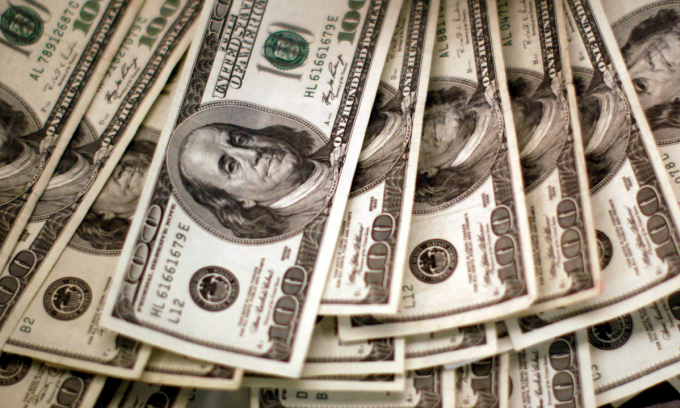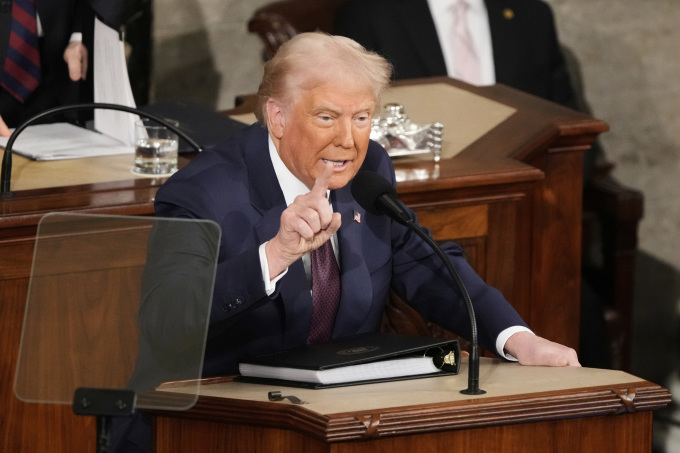
Taiwan and South Korea, top producers of semiconductors and home to chip giants, may be the most severely impacted by the U.S.’s new tariff hikes, according to CNN.
On Feb. 18 President Donald Trump announced tariffs of "25% or higher" on "chips and things related to chips" alongside those on imported automotives and pharmaceuticals, though no concrete details have been provided about the former.
This move by President Trump is part of a strategy to encourage reshoring of strategic industries, including computer chips and semiconductors. The U.S. Department of Commerce reported that imports of semiconductors and other electronic components had cost US$139 billion last year.
As the top global producer and source of semiconductors for the U.S., Taiwan and its companies stand to lose the most. Taiwan’s chip and electronic shipments to the U.S. grew from $9.4 billion in 2019 to $36.9 billion in 2024. Globally, since 2013 Taiwan has dominated in integrated circuit exports, which peaked at $251 billion in 2022 and made up nearly half of Taiwan’s total exports.
Taiwan is home to Taiwan Semiconductor Manufacturing Company (TSMC), the largest semiconductor manufacturer in the world. It is the global leader in contract chip fabrication for "fabless" companies such as Apple and Nvidia, which are only involved in R&D and chip design and outsource the fabrication and back-end work. In the fourth quarter of 2024 the company reported revenues of $26.8 billion and profits of $11.6 billion.
South Korea also stands to lose significantly. Its semiconductor exports in 2024 topped $141.9 billion, or a full fifth of its total exports, according to the Korea Economic Daily. The East Asian country is home to the two largest memory chip manufacturers in the world. SK Hynix is the world leader in high-bandwidth memory chips and a critical supplier of the category to Nvidia.
Samsung Electronics leads in the consumer storage devices category and has a significant presence in logic chips used in personal computing devices and smart home appliances.
Deepali Bhargava, Asia-Pacific head of research at ING, said some Southeast Asian countries, which have benefited from firms transitioning to a China+1 production model following President Trump’s first term, would also be affected.
In his statement announcing the tariffs, Trump said they might "go very substantially higher over a course of a year." He suggested last month that the peak tariff rate could rise to 100 percent.
On Feb. 14 Taiwanese leader Lai Ching-te told reporters that his government would further encourage businesses to invest in the U.S. and that "Taiwan is an indispensable partner in the U.S.'s efforts to rebuild the manufacturing sector and consolidate its leadership in high-tech industries."
According to the U.S. International Trade Commission, while the U.S. remains a leader in R&D and chip design and still captures the most value added in total, since the 1990s its companies have largely outsourced the fabrication and packaging of chips to Asian countries with lower production costs. As of 2019 the U.S. only hosted around 10 percent of these downstream activities globally.
South Korean analysts fear their country’s memory chip businesses would feel pressure as most of their production facilities are based locally or in China, competitors plan to ramp up U.S. production, and memory chips are becoming mass-produced and commoditized.
U.S. efforts to reshore semiconductor production started during former President Joe Biden’s CHIPS and Science Act, which provisioned $30 billion as of Aug. 2024 for chip-related projects across the country like building new facilities and expanding production. Up to $6.6 billion of these funds will go to TSMC to expand its Arizona facility. Trump has claimed his tariffs would better incentivize chip companies to move to or expand operations in the U.S.




